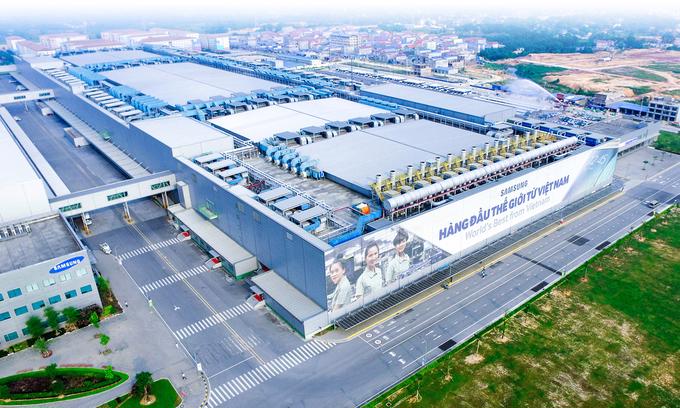Escalating trade tensions between the United States and China are reshaping the global economic landscape, with profound implications for countries worldwide. Amidst this backdrop, Vietnam emerges as a focal point, where the confluence of geopolitical factors and economic opportunities presents both promise and peril for its economy.
Escalating Trade Tensions
President Biden's recent call to triple import tariffs on Chinese steel and aluminum, coupled with investigations into China's maritime and logistics industries by the Office of the United States Trade Representative, signals a significant escalation in the US-China trade dispute.
In response, China has retaliated by imposing anti-dumping taxes on select imports from the United States, marking a tit-for-tat escalation in trade measures.
The intensification of trade tensions between the world's two largest economies reverberates across global trade networks, disrupting supply chains and reshaping market dynamics. Concerns about the stability of international trade mount as tariffs escalate and retaliatory measures deepen, posing challenges for businesses and policymakers alike.
Vietnam's Strategic Position
Amidst escalating tensions, Vietnam emerges as a strategic beneficiary, positioned at the crossroads of global trade routes and manufacturing hubs.
With its geographical proximity to China, competitive labor costs, and favorable trade conditions, Vietnam has become an attractive destination for companies seeking to diversify their supply chains away from China.
Vietnam's exports to the United States have surged since the onset of the US-China trade war, driven by increased demand for Vietnamese goods and the country's growing reputation as a reliable manufacturing base.
The recent upgrade of the bilateral relationship between the United States and Vietnam to a Comprehensive Strategic Partnership further bolsters Vietnam's position as a preferred trading partner.
Foreign direct investment (FDI) inflows into Vietnam's manufacturing and processing sectors have soared, fueled by the trend of shifting production from China and Vietnam's conducive business environment.
Multinational corporations, recognizing Vietnam's potential as a manufacturing hub, have made substantial investments in high-tech industries, signaling confidence in Vietnam's economic prospects.
Investments in high-tech industries, such as semiconductor manufacturing and electronic components production, underscore Vietnam's transition towards value-added manufacturing and technological innovation.
Companies like Hana Micron Vina, Amkor Group, and Luxshare-ICT have expanded their operations in Vietnam, contributing to the country's export growth and economic development.
As trade tensions between the United States and China continue to escalate, Vietnam stands at a critical juncture, balancing opportunities for economic growth with challenges posed by geopolitical uncertainties.
By capitalizing on its strategic position, favorable trade conditions, and robust investment inflows, Vietnam is poised to emerge as a key player in the global economy, navigating the complexities of a rapidly evolving trade landscape with resilience and adaptability.









 Google translate
Google translate